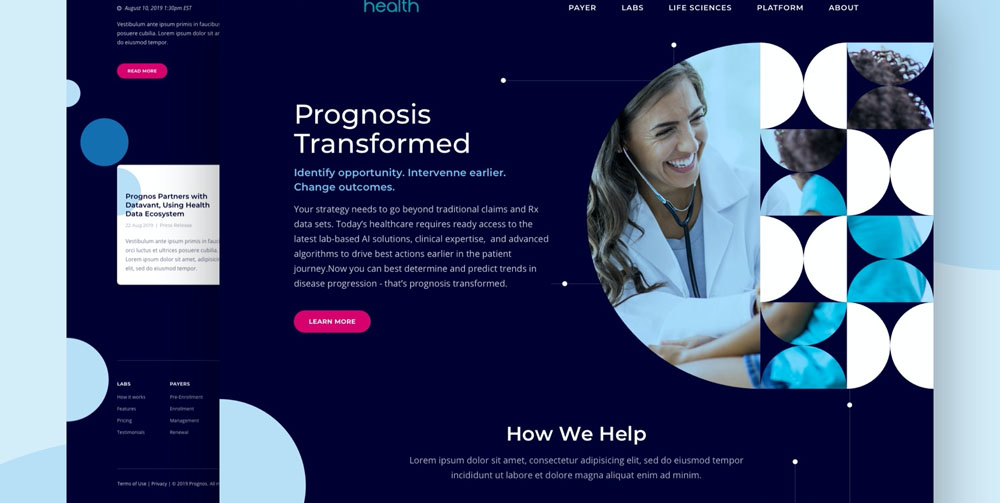Branding plays a crucial role in the healthcare industry, shaping how patients perceive and connect with healthcare organizations, hospitals, clinics, and medical professionals. In today’s competitive healthcare landscape, establishing a strong and trusted brand is essential for attracting patients, building loyalty, and driving positive patient experiences. In this article, we will explore the importance of branding in healthcare and how it can positively impact the success of healthcare organizations in Vietnam.
I. Building Trust and Credibility:
Patient Confidence: Building patient confidence is a foundational aspect of branding in healthcare. When patients choose a healthcare provider, they place their trust in the organization to deliver quality care and positive outcomes. A strong brand instills confidence by consistently meeting patient expectations and delivering excellent healthcare experiences. By effectively communicating the organization’s values, expertise, and commitment to patient well-being, branding plays a vital role in establishing trust and credibility.

Reputation Management: In the digital age, reputation management is of utmost importance for healthcare organizations. Branding allows healthcare providers to proactively manage their reputation and shape public perception. By actively monitoring online reviews, engaging with patients, and addressing any concerns or negative feedback, healthcare organizations can demonstrate their commitment to patient satisfaction and continuous improvement. An effective branding strategy also highlights the organization’s strengths, achievements, and positive patient experiences, further strengthening its reputation and building trust among current and potential patients.
Establishing Expertise: In a complex and specialized field like healthcare, branding helps healthcare organizations establish themselves as experts in their respective domains. Through branding efforts, healthcare providers can effectively communicate their expertise, advanced technologies, specialized services, and experienced professionals. This positions them as trusted authorities in their field and instills confidence in patients seeking specialized care. By showcasing the organization’s accomplishments, certifications, and research contributions, branding plays a crucial role in establishing credibility and attracting patients who are seeking the highest level of expertise.
II. Enhancing Patient Experience:
Consistent Messaging: A cohesive and consistent brand messaging strategy is essential in healthcare to ensure a seamless and positive patient experience. When patients interact with various touchpoints of the healthcare organization, from the website and marketing materials to the physical environment and staff interactions, consistent messaging reinforces the organization’s values, mission, and commitment to patient care. Clear and consistent messaging creates a unified brand experience and fosters trust, allowing patients to feel confident and comfortable in their healthcare journey.
Emotional Connection: Building an emotional connection with patients is a powerful aspect of branding in healthcare. Effective branding strategies leverage emotions to create a sense of empathy, compassion, and personalized care. By understanding and addressing patients’ emotional needs, healthcare organizations can create an environment that feels welcoming, supportive, and reassuring. Through branding, healthcare providers can communicate their genuine care for patients, their families, and the community, establishing a deep emotional connection that enhances the patient experience and builds lasting relationships.

Patient-Centric Approach: Branding plays a pivotal role in emphasizing a patient-centric approach in healthcare delivery. A strong brand places the patient at the center of all decision-making processes and care delivery strategies. By understanding patient needs, preferences, and expectations, healthcare organizations can tailor their services to meet individual patient requirements. A patient-centric approach involves clear communication, shared decision-making, personalized care plans, and ongoing engagement with patients. Branding ensures that this patient-centric philosophy permeates every aspect of the healthcare organization, creating a culture that values patient satisfaction and well-being.
III. Differentiation and Competitive Advantage:
Standing Out in a Crowded Market: The healthcare market is highly competitive, with numerous providers offering similar services. Branding is crucial for healthcare organizations to differentiate themselves and stand out in this crowded landscape. A strong brand effectively communicates the organization’s unique value proposition, differentiating factors, and competitive advantages. By clearly defining their specialized services, innovative approaches, and commitment to quality, healthcare providers can attract patients who align with their specific offerings. Effective branding strategies help create a distinct identity that resonates with the target audience and positions the organization as the preferred choice among competitors.
Attracting and Retaining Patients: An impactful and well-executed brand attracts new patients and fosters patient loyalty. By effectively communicating the organization’s strengths, expertise, and commitment to patient care, branding creates a positive perception and attracts patients seeking high

In conclusion branding in the healthcare industry is more than just a logo or visual identity. It is a strategic approach that builds trust, enhances patient experiences, and creates differentiation in a competitive market. By investing in branding efforts, healthcare organizations in Vietnam can establish themselves as trusted providers, deliver exceptional patient experiences, and drive long-term success. Here are the key takeaways:
- Building a strong brand in healthcare is crucial for establishing trust and credibility.
- Effective branding enhances patient experiences and fosters emotional connections.
- Differentiation through branding helps healthcare organizations stand out in a competitive market.
- Branding attracts and retains patients and builds relationships with referring physicians.
Contact us today to discuss how we can elevate your brand presence in the healthcare industry.

Leave a Reply